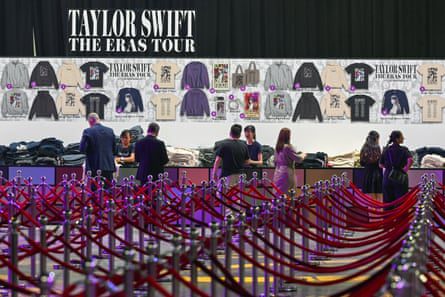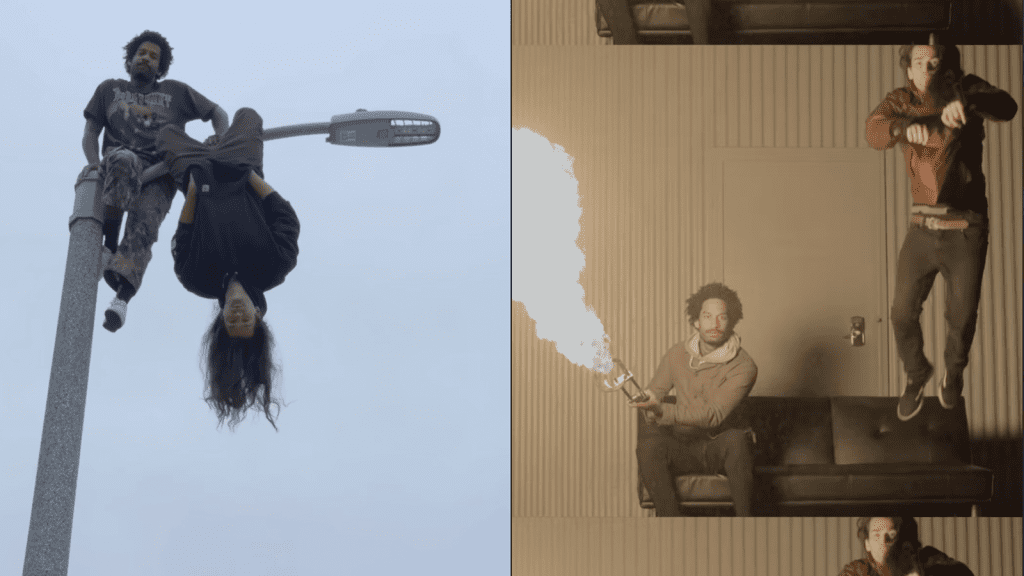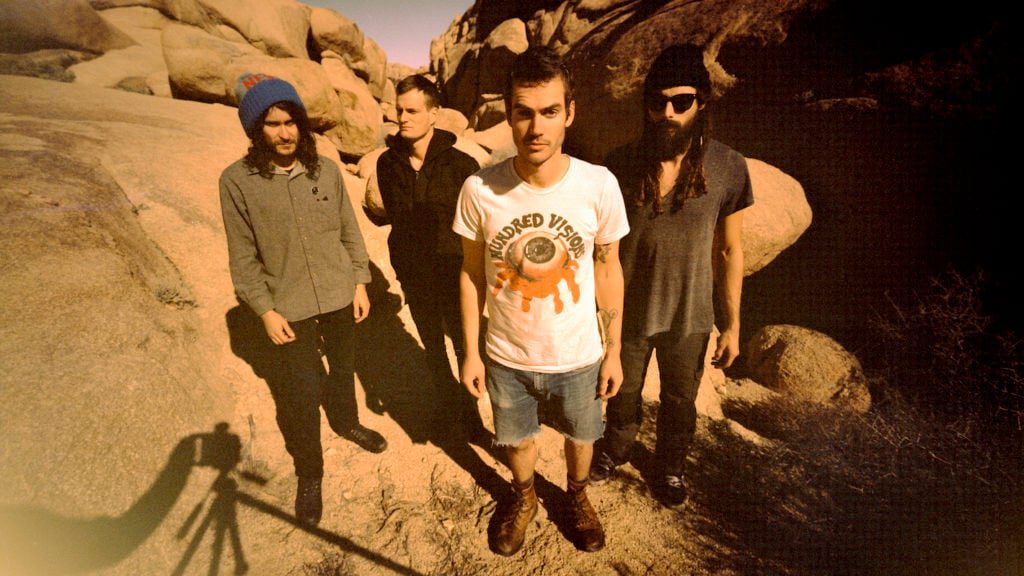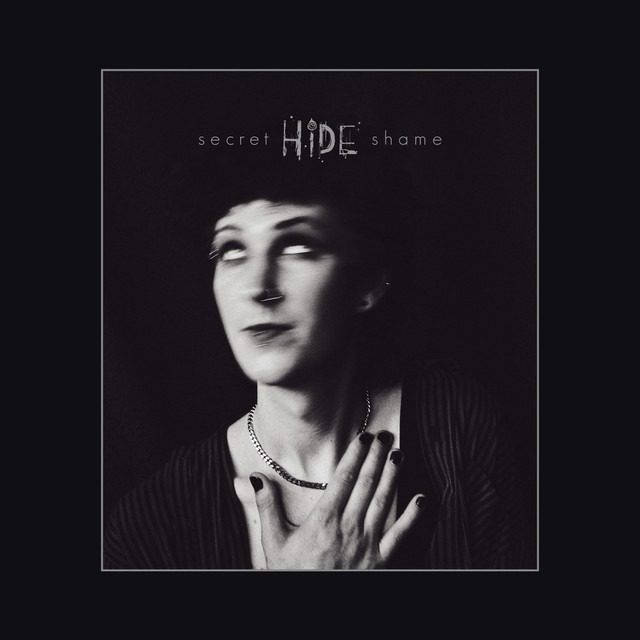
‘The working class can’t afford it’: the shocking truth about the money bands make on tour
When you see a band playing to thousands of fans in a sun-drenched festival field, signing a record deal with a major label or playing endlessly from the airwaves, it’s easy to conjure an image of success that comes with some serious cash to boot – particularly when Taylor Swift has broken $1bn in revenue for her current Eras tour. But looks can be deceiving. “I don’t blame the public for seeing a band playing to 2,000 people and thinking they’re minted,” says artist manager Dan Potts. “But the reality is quite different.”
Post-Covid there has been significant focus on grassroots music venues as they struggle to stay open. There’s been less focus on the actual ability of artists to tour these venues. David Martin, chief executive officer of the Featured Artists Coalition (FAC), says we’re in a “cost-of-touring crisis”. Pretty much every cost attached to touring – van hire, crew, travel, accommodation, food and drink – has gone up, while fees and audiences often have not. “[Playing] live is becoming financially unsustainable for many artists,” he says. “Artists are seeing [playing] live as a loss leader now. That’s if they can even afford to make it work in the first place.”
Potts, who works at Red Light Management – home to everyone from Sabrina Carpenter to Kaiser Chiefs and Sofia Kourtesis – feels like there is an industry equivalent of the Spider-Man meme in which they are all pointing to one another. “People who work at labels think bands make loads of money touring, while booking agents think they make loads of money on publishing and so on,” he says. “Everyone thinks artists make money from the other side of the industry they’re not involved in.
“Artists are the biggest employers in the industry. They pay for the tour manager, session musicians, agent, manager, crew, insurance, travel, accommodation, equipment, rehearsal space, production. Everything. I don’t think people know this is all the stuff that the artist pays for and does.”
“Greater transparency is needed,” says Lily Fontaine, lead singer of Leeds band English Teacher. On paper, the four-piece appear to have made it. They are signed with a major label, Island, have played on Later With … Jools Holland, get healthy BBC Radio 6Music airplay, their debut album has received five-star reviews and they are about to embark on their biggest tour to date, which includes an 800-capacity home-town show.
“The reality is that it’s normal for all of these achievements to coexist alongside being on Universal Credit, living at home or sofa surfing,” says Fontaine. During the making of their debut album, she and bandmate Lewis Whiting did the latter while unable to afford rent.
In their four years of existence, English Teacher have yet to turn a profit from touring. “We’ve never directly paid ourselves from a gig,” says Whiting. “A headline tour usually comes out with a deficit. The only thing that we ever make any kind of profit on is festivals, because the fees can be higher, but any money left over just goes towards the next outgoings.” A successful show for the group in the past has been defined by whether they can flog enough merch to afford a supermarket food shop.
So how do they survive? “In the world of artists, we’re in a lucky position,” says Whiting. “We try to pay ourselves £500 a month each from the band pot.” However, they’ve been reliant on their advance for this, which is now gone. “We’re now in that stage where we’re gonna have to figure out where that £500 a month is gonna come from,” says Fontaine. “Because the gig fees won’t be able to cover that.” The band estimate that their 16-date UK tour in May will generate roughly £800 profit. But, says Fontaine, “realistically, I don’t think there will be any profit because things always go over budget”.
For many artists, fees aren’t increasing in line with costs. “There’s been no real incline at all,” says Potts. “For support slots, I don’t think the fees have changed in the last 10 years or so that I’ve been managing, whether that’s £50 at the smaller end or £500 quid for some of the biggest shows.” Fees for headline shows can vary enormously for bands, even on the same tour. Playing a 200-capacity club in Newcastle may land you £600, while a 1,500 cap in London may net you £3,000.
And fewer people are coming to shows at the small-to-mid-sized end of things. “In our audience data, we see there is a gap in new audiences coming through post-pandemic,” says the FAC’s Martin. “As well as a bit of a drop-off in some of the older audiences returning to live shows.” However, despite stagnant fees and shrinking audiences, touring activity in the UK is at a peak. Due to the costs of touring Europe (which can be thousands in taxes and carnet alone) 74% fewer UK bands are now touring Europe post-Brexit. “It’s much more difficult to tour in Europe so there are more artists trying to perform domestically,” says Martin. “That creates a saturation problem.”
For this article, the Guardian has seen 12 tour budget sheets for various bands and artists varying from up-and-comers to firmly established and successful acts, all of whom regularly undertake headline tours across the UK in venues ranging from 150 to 2,500 capacity. Almost all of these result in losses. Understandably, most shared their balance sheets on the condition of anonymity. One four-piece indie band, whose last two albums went Top 10 in the UK charts, reported a loss of £2,885 from a six-day UK tour. The only tour that shows anything resembling healthy profit was a 29-date tour for a solo artist who came away with £6,550. Not bad going for a month’s work but, as Martin points out, “that’s then his touring done for the next six months. So it’s not enough money.”

Nubiyan Twist are a nine-piece Afro-jazz outfit who have a loyal following and tens of millions of streams on Spotify, “We pride ourselves on being able to put on a big show, like your Fela Kutis or James Browns, these epic spectacles,” says bandleader Tom Excell. “But it’s getting more difficult, without a shadow of a doubt.” For an upcoming eight-show tour of Europe, they are predicting a loss of £4,931.28. The only way they can justify doing it is because they got funding from the BPI Music Export Growth Scheme. “I would have just pulled the plug if it wasn’t for that,” says Excell. “I’ve got a two-year-old and I can’t be away from home for that long and come back with a loss.”
Even when the band get more lucrative fees for festivals it’s still tough. They will be paid £5,000 for a festival performance this summer but the total profit after band wages (as Excell pays all his band members in full first) expenses and commissions are paid out will be £277.60. “After four albums and 15 years doing this, to still be having to gamble on whether I’m going to make anything, while everyone else gets paid a guaranteed amount, is a struggle,” admits Excell.
Such thin margins leave little wiggle room, as the space-surf band Japanese Television (who headline 100-300 capacity venues) found out when their booking agent reduced their 13-date UK and EU tour to eight shows with a five-day gap in the middle that will add a further loss of around £1,200 to a tour that is already set to lose them around £700. “Records and T-shirts are basically what keeps us going,” says the band’s Tim Jones. “The only way this tour is working for us is because we just put out our second album and we did about 60 presales on the vinyl and that was basically enough to pay for the van. It’s a hobby that just about pays for itself.”
after newsletter promotion
The question is: who else will be able to afford to pursue music as a hobby? “It depresses me how many middle and upper class people there are in the music industry,” says manager Potts. “Because the working class just can’t afford to fork out £150 a day for van hire. The only artists doing that are people who have deeper pockets and can afford to take the hit.”
Of course, every act is different in terms of what they justify as reasonable outgoings and not everyone has the same costs, but Potts says from his experience, generally speaking, bands with four or five members now need to be playing 2,000+ capacity venues nationwide to “really start to see things tip”. That tipping point is out of reach for the majority. “Most people don’t actually get to that level,” Potts says. “Just look back at any festival lineup from 10-20 years ago and see which names are still on festival bills and how many you’re like: what happened to them?”
The gap between those who are flying and those who are floundering has become even more stark. “It feels like the top 1% have become the top 0.5%,” says Martin. “The level of artists we’re talking about here that are struggling to make things stack up financially would really surprise people.”
In 2022, the Grammy-winning Pakistani singer Arooj Aftab posted on X: “Touring has been amazing. We headlined a ton, had massive turnouts and have proven ourselves in all the markets. Yet still, running tens of thousands in debt from the tour and I’m being told that it’s ‘normal’. Why is this normal? This should not be normalised.”
I’m told that one US artist – who released one of the most critically acclaimed albums of 2023, which went Top 10 and placed very highly on numerous year-end polls and was nominated for a major award – worked out that the only way she could make her UK tour work was by sub-letting her home.

It’s a far cry from Taylor Swift’s record-breaking Eras jaunt. “The very high end of the live industry is reporting record profits,” says Martin. “You can’t have a healthy music ecosystem where at one end you’ve got people going ‘we’ve made more money than we’ve ever made’ and at the other end you’ve got relatively successful artists that are sofa-surfing while signed to a major label.”
Is there an answer? “When you’re touring Europe, you realise how much state funding in the arts there is,” says Excell. “It really needs more state funding and support from the top down.”
Martin echoes this. “The government needs to start looking at spending money on the music industry as an investment rather than as a cost,” he says. “But you also need to support a sector in a time of crisis. And this is a time of crisis.”




